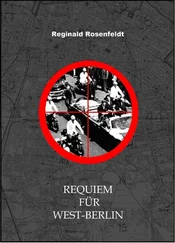Isaiah Berlin - Russian Thinkers
Здесь есть возможность читать онлайн «Isaiah Berlin - Russian Thinkers» весь текст электронной книги совершенно бесплатно (целиком полную версию без сокращений). В некоторых случаях можно слушать аудио, скачать через торрент в формате fb2 и присутствует краткое содержание. Год выпуска: 0101, Жанр: Старинная литература, на русском языке. Описание произведения, (предисловие) а так же отзывы посетителей доступны на портале библиотеки ЛибКат.
- Название:Russian Thinkers
- Автор:
- Жанр:
- Год:0101
- ISBN:нет данных
- Рейтинг книги:3 / 5. Голосов: 1
-
Избранное:Добавить в избранное
- Отзывы:
-
Ваша оценка:
- 60
- 1
- 2
- 3
- 4
- 5
Russian Thinkers: краткое содержание, описание и аннотация
Предлагаем к чтению аннотацию, описание, краткое содержание или предисловие (зависит от того, что написал сам автор книги «Russian Thinkers»). Если вы не нашли необходимую информацию о книге — напишите в комментариях, мы постараемся отыскать её.
Russian Thinkers — читать онлайн бесплатно полную книгу (весь текст) целиком
Ниже представлен текст книги, разбитый по страницам. Система сохранения места последней прочитанной страницы, позволяет с удобством читать онлайн бесплатно книгу «Russian Thinkers», без необходимости каждый раз заново искать на чём Вы остановились. Поставьте закладку, и сможете в любой момент перейти на страницу, на которой закончили чтение.
Интервал:
Закладка:
epitomises the pariLdox of Russian consistency: their desire for an ideal
which would resist all attempts at demolition led the intelligentsia to
apply themselves to the work of demolition with an enthusiasm and
lucidity which exposed the hollowness of those assumptions about
society and human nature on which the belief in absolute and universal
solutions is based. In an essay on the populist tradition which dominated
Russian radical thought in the nineteenth century, Berlin shows that
the populists were far ahead of their time in their awareness of the
dehumanising implications of contemporary liberal and radical theories
of progress, which placed such faith in quantification, centralisation,
and rationalisation of productive processes .
. Most of the intelligentsia regarded their destructive criticism as a
mere preliminary, the clearing of the ground for some great ideological
construction; Berlin sees it as thoroughly relevant to our own time,
xviii
INTR O D U CTION
when only a consistent pluralism an protect human freedom from the
depredations of the systematisers. Such a pluralism, he shows, was
fully articulated in the ideas of a thinker whose originality has hitherto
been largely overlooked-Alexander Herzen.
The founder of Russian populism, Herzen was known in the west as
a Russian radical with a Utopian faith in an archaic form of socialism.
Isaiah Berlin, in two essays on Herzen, and in introductions1 to his
greatest works, From the Other Shore and My Past and Thoughts, has
transformed our understanding of him, firmly establishing him as 'one
of Russia's three moral preachers of genius', the author of some of the
most profound of modern writings on the subject of liberty.
Like other members of the intelligentsia, Herzen had begun his
intellectual career with a search for an ideal, which he found in
socialism; he believed that the instincts of the Russian peasant would
lead to a form of socialism superior to any in the west. But he refused
to prescribe his ideal as a final solution to social problems, on the
grounds that a search for such a solution was incompatible with respect
for human liberty. At the beginning of the 184os he was attracted, like
Bakunin, to the Young Hegelians, with their belief that the way to
freedom lay through negation of the outworn dogmas, traditions and
institutions to which men habitually enslaved themselves and others.
H� espoused this rejection of absolutes with a thoroughgoing consistency equalled only by Stirner, deriving from it a deeply radical humanism. He attributed the failure of liberating movements in the
past to a fatally inconsistent tendency to idolatry on the part even of the
most radical iconoclasts, who liberate men from one yoke only to
enslave them to another. Rejection of specific forll!S of oppression never
went far enough: it failed to attack their common source-the tyranny
of abstractions over individuals. As Berlin shows, Herzen's attacks on
all deterministic philosophies of progress demonstrate how well he
understood that 'the greatest of sins that any human being can perpe-trate is to seek to transfer moral responsibility from his own shoulders to an unpredictable future order', to sanctify monstrous crimes by faith
in some remote Utopia.
Berlin emphasises that Herzen's own predicament was a very
modern one, in that he was torn between the conflicting values of
equality and excellence: he recognised the injustice of elites but valued
1 Not included in this volume. The introduction to My Past a,uJ Thoughts is
one of the essays in Against the Curren/, a forthcoming volume of the selection.
xix
RUSSIAN THIN K E R S
the- intellectual and moral freedom, and the aesthetic distinction, of
true aristocracy. But while refusing, unlike the ideologists of the left,
ro sacrifice excellence to equality, h� understood, with J. S. Mill,
something which has only become dear in our own day: that the
common mean between these values, represented by 'mass societies', is
not the best of both worlds, but more frequently, in Mill's words, an
aesthetically and Nhically repellent 'conglomerated mediocrity', the
submergence of the individual in the mass. With great conviction and
in a language as vivid and committed as Herzen's own, Berlin has
perceived and conveyed to the English reader the originality of
Herzen's belief that there are no general solutions to individual and
specific problems, only temporary expedients which must be based on
an acute sense of the uniqueness of each historical situation, and on a
high degree of responsiveness to the particular needs and demands of
diverse individuals and peoples.
Berlin's exploration of the self-searching of Russian thinkers includes studies of two writers-Tolstoy and Turgenev. These studies refute a widespread misconception about the relations between Russian
writers and thinkers: namely, that in Russia literature and radical
thought form two distinct traditions related only by mutual hostility.
Tolstoy's and Dostoevsky's well-known aversion to the intelligentsia
is frequently quoted to emphasise the gulf between Russia's great
writers, who were concerned with exploring men's spiritual depths, and
the intelligentsia, materialists concerned only with the external forms
of social existence. In his essays on Tolstoy and Turgenev Berlin
shows that their art can be understood only as a product of the same
moral conflict as that experienced by the radical intelligentsia. The
essays have a dual significance: as works of criticism they offer insights
which should make a fundamental difference to our understanding of
two of Russia's greatest writers; as studies of conflicts between two
opposing visions of reality they are a significant contribution to the
·
history of ideas.
In his famous study of Tolstoy's view of history, 'The Hedgehog
and the Fox', and in the less well-known essay, 'Tolstoy and Enlightenment', Berlin shows that the relation between Tolstoy's artistic vision and his moral pread:.ing may be understood as a titanic struggle
between the monist and pluralist visions of reality. Tolstoy's 'lethal
nihilism' led him to denounce the pretensions of all theories, dogmas
and systems to explain, order or predict the complex and contradictory
phenomena of history and social existence, but the driving force of this
XX
INTR O D U C T I ON
nihilism was a passionate longing to discover one unitary truth,
encompassing all existence and impregnable to attack. He was thus
constantly in contradiction with himself, perceiving reality in its
multiplicity but believing only in 'one vast, unitary whole'. In his art
he expressed an unsurpassed feeling for the irreducible variety of
phenomena, but in his moral preaching he advocated simplification,
reduction to one single level, that of the Russian peasant or the simple
Christian ethic. In some of the most psychologically delicate and
revealing passages ever written on Tolstoy, Berlin shows that his
tragedy was that his sense of reality was too strong to be compatible
with any of the narrow ideals he set up; the conclusions articulated in
Herz.en's writings were demonstrated in the tragedy of Tolstoy's life:
his inability, despite the most desperate attempts, to harmonise opposing
but equally valid goals and attitudes. Yet his failure, his inability to
resolve his inner contradictions, gives Tolstoy a moral stature apparent
Читать дальшеИнтервал:
Закладка:
Похожие книги на «Russian Thinkers»
Представляем Вашему вниманию похожие книги на «Russian Thinkers» списком для выбора. Мы отобрали схожую по названию и смыслу литературу в надежде предоставить читателям больше вариантов отыскать новые, интересные, ещё непрочитанные произведения.
Обсуждение, отзывы о книге «Russian Thinkers» и просто собственные мнения читателей. Оставьте ваши комментарии, напишите, что Вы думаете о произведении, его смысле или главных героях. Укажите что конкретно понравилось, а что нет, и почему Вы так считаете.










